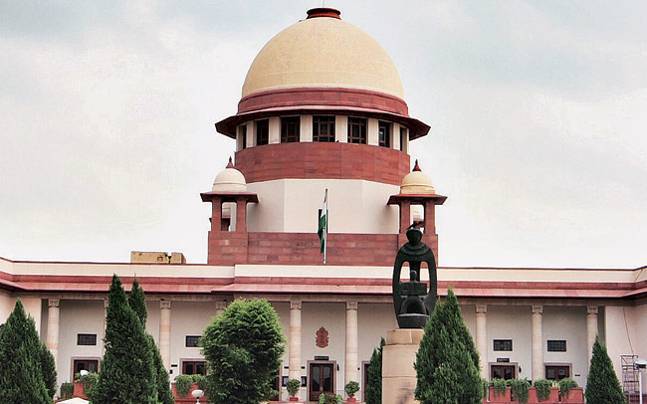 English
English

Haryana government today moved the Supreme Court seeking early hearing in the matter related to its row with Punjab over the Satluj-Yamuna Link canal.

New Delhi: The Haryana government today moved the Supreme Court seeking early hearing in the matter related to its row with Punjab over the Satluj-Yamuna Link (SYL) canal.
The matter was mentioned before a bench comprising Chief Justice Dipak Misra and Justices A M Khanwilkar and D Y Chandrachud.
The bench asked Haryana's counsel to approach the apex court registry for listing of the matter before an appropriate bench.
Also Read: SC directs Delhi, Haryana to sort out Yamuna water sharing dispute
The apex court had earlier granted the Centre time to explore the possibility of an amicable solution to the SYL canal row between Punjab and Haryana.
On July 11, the apex court said it was obligatory for Punjab and Haryana to respect and execute its orders on the SYL canal issue.
The controversial 1981 water-sharing agreement came into being after Haryana was carved out of Punjab in 1966. For effective allocation of water, the SYL canal link was conceptualised and both states were required to construct their portions within their territories.
Haryana constructed the portion of SYL canal in its territory. However, Punjab, after the initial phase, stopped the work, leading to a spate of litigations.
In 2004, the Congress government in the state came out with the Punjab Termination of Agreement Act with the intention to terminate the 1981 agreement and all other pacts relating to sharing waters of the Ravi and Beas rivers.
The apex court had first decreed Haryana's suit in 2002 asking Punjab to honour its commitments with regard to water sharing in the case.
Punjab had challenged the verdict by filing an original suit that was rejected in 2004 by the Supreme Court which asked the Centre to take over the remaining infrastructure work of the SYL canal project. (PTI)